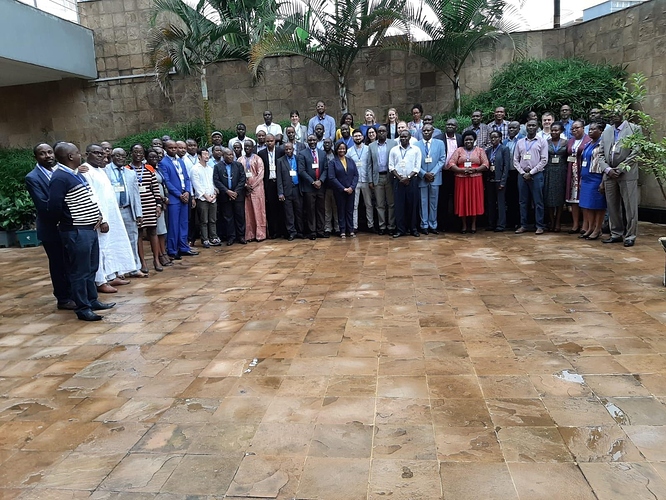Before social distancing and travel bans were a thing, a team from UiO joined participants, from 10 African countries (Ghana, Nigeria, Kenya, Tanzania, DR Congo, Rwanda, Uganda, Togo, Mali and Cameroon) and partners (CDC, GAVI, Health Enabled, HISP, JSI, PATH, and WHO) in Kigali, Rwanda. There we learned from the experience of deployment and use of the Immunization App within DHIS2 in order to improve the process in remaining countries and subsequent projects.
The Key Successes of the workshop were:
- Acknowledging the development of of tools and resources to enhance data management
- Rapid deployment of DHIS2 and associated packages within AFRO
- With support from GAVI, as of December 2019 we had deployed:
- Data quality tool - 30 countries
- EPI (Dashboard/Immunization analysis) – 23 countries
- The commendable deployment of e-tracker in Rwanda
Some Key Challenges of country implementations noted were:
- In-country implementation up to operational level (Resources, Governance; Etc)
- Sub-optimal coordination and stakeholder engagement
- Knowledge gap and high cost of training especially at the health facility level
- Data is available, but not regularly used and the quality needs improvement. Data use observed to be sub-optimal at sub-national and health facility levels across all countries, with parallel systems resulting in increased workload
During the meeting the participants decided on a series of Key Action Points in order to make other implementations smoother in the future:
General
- Country teams to debrief on experiences shared during this workshop, identify the components/functions they are interested in and plan for the implementation, including technical assistance if needed.
- Countries should prioritize activities with timeline regarding operationalization of DHIS2 apps (immunization, Data quality, surveillance, SIAs) and submit plans and budget for implementation of HIS improvements, including technical assistance
Governance, infrastructure and funding
- Countries are encouraged to demonstrate ownership of HMIS and channel resources towards strengthening the system
- DHIS2 infrastructural needs to be prioritized in country’s HSS plans and budgets
- Countries to better coordinate TAs and partner support alignment with the overall HIM strategic plan at country levels. Reports and recommendations following TAs should be widely disseminated among stakeholders.
- WHO to support coordination, communication and visibility of TAs from HISP/UiO in countries to promote a better involvement of key stakeholders (HIS, EPI, WHO and other partners)
Capacity building
- External technical assistance should focus on skill transfer to National experts
- The national capacity building plan should include skills transfer to staff at National and sub-national levels, especially, front line service delivery personnel
- Countries to initiate and institutionalize eLearning platforms with certified courses which contribute to credit points for continuous professional development and license renewal for health workers.
- Partners to establish a best practice and information sharing platform in order to promote experience sharing between countries.
Data use and system functionality
- Innovations should target generation of analytics, reports and data use at all levels, especially at health facility level.
- Countries are encouraged to institutionalize review meetings and provision of feedback especially at sub-national levels. Action trackers should be used to monitor implementation of action points reached during review meetings
- Countries to explore and facilitate system interoperability to reduce the burden of work for frontline health workers
- Countries to download documentation on the DHIS2 packages (Link) and use as reference materials.
- WHO/UiO/HISP to facilitate inclusion of data triangulation functions in the DHIS2 (EPI, Surveillance, Logistics, etc)
- UiO/HISP to promote the existing mechanism for reporting of bugs and malfunction as well as requests for enhancements/upgrades of system by countries
